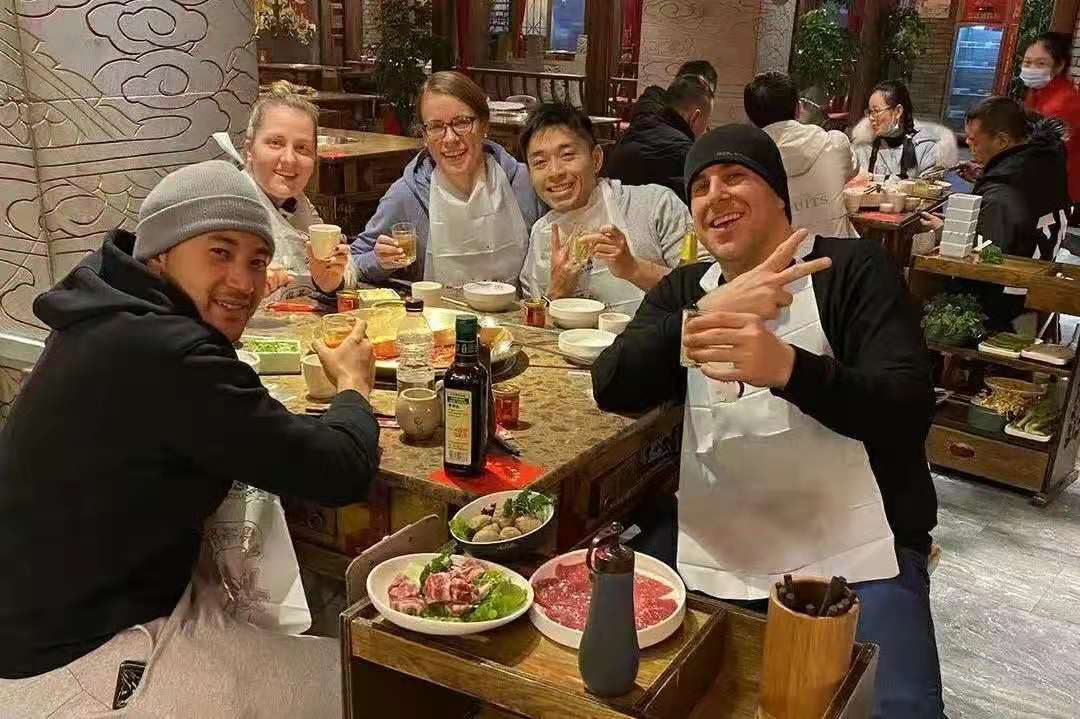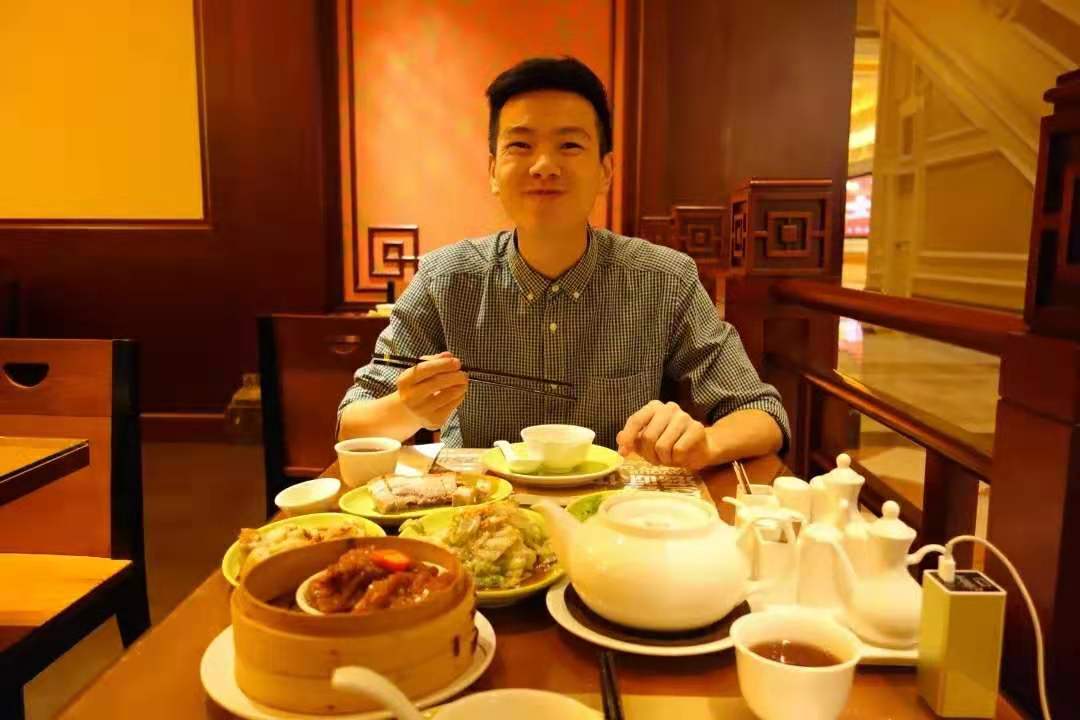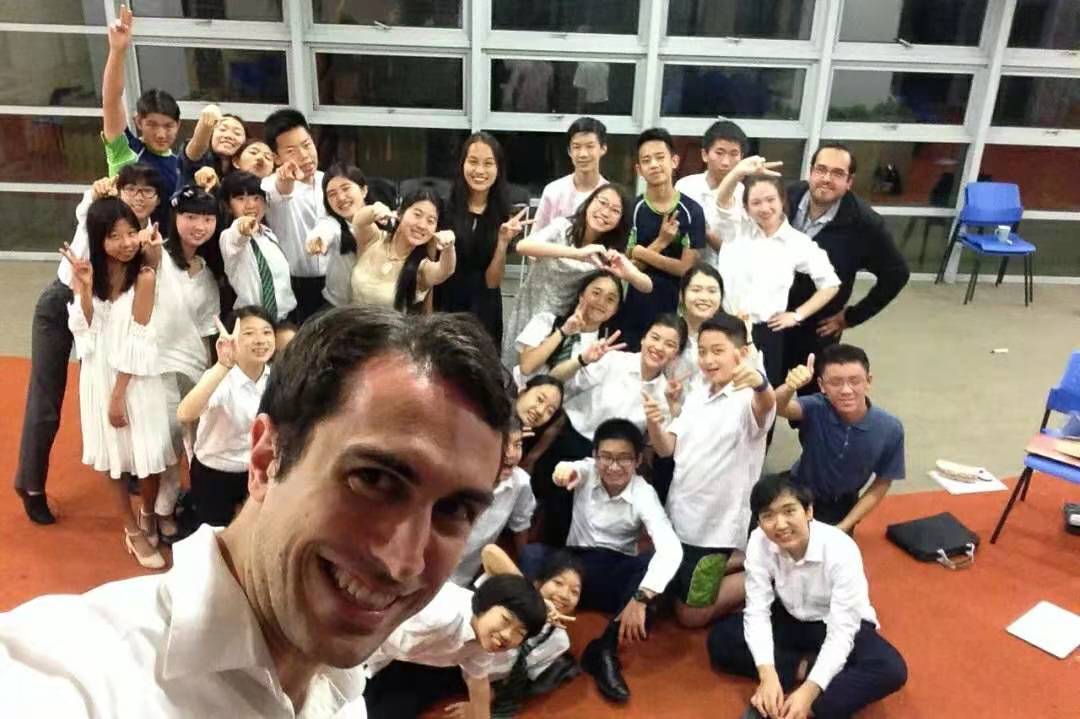This article is part two of a series on foreign teacher’s experiences learning about Chinese culture and language during their time in China and at YK Pao School.
Pao School has teachers from all over the world.
We are like one big family; we teach each other about
our culture, spend time together and have fun together.
——Jonathan,
Primary School Homeroom Teacher
As the Year of the Ox approaches, the YK Pao School community is ready to welcome a new year and say goodbye to the challenges of the Year of the Rat. For the school’s international staff, Chinese New Year is also a time to learn more about Chinese customs, culture and history.
A core strength of YK Pao School is its openness and diversity. This can be seen in the way the international staff embrace Chinese culture, reflecting the school’s core mission to pass on traditions of Chinese culture and to foster an international perspective. As a community dedicated to bilingualism, many teachers at the school have decided to develop their Chinese language skills to bond with their colleagues and Chinese family, embrace their heritage and settle into their home of choice.
As such, the school offers various opportunities for the faculty to develop their Mandarin. For those who are interested, Chinese language lessons are included as part of the school’s professional development offerings. Alongside the development of language, the school also invites staff to join regular cultural activities. These activities allow them to gain a deep appreciation for traditional Chinese culture, learn traditional Chinese skills and to visit important landmarks.
Embracing China through learning Chinese
Recently, a number of foreign teachers shared their experiences of life in China and with Pao School. One thing they all have in common is the desire to learn more about China and develop their understanding of its culture, history and people.
Andrew, Director of International Admissions and Alumni Affairs, explains that his interest in learning Mandarin reflects his feelings for the country itself, saying, “I am studying Chinese because I love China. I also want to feel more connected with my colleagues and my community.”

Andrew and YK Pao School colleagues enjoying hot pot in Sichuan
Last year, Andrew spent the summer in an intensive Chinese course, showing his dedication to building this connection to China. Siobhain, Primary School Principal, also works hard. Since she joined Pao School two years ago, she has spent two hours every week practising with her Mandarin teacher. She sees it as the point in her week where she can relax and focus on learning more about her new home, explaining, “I feel that learning Chinese shows respect to the Chinese people and culture - a huge benefit of living abroad is enriching your knowledge and experiences and trying to learn the language helps with this.”
Though learning Chinese is very interesting, it is also very challenging – with the teachers saying that they found grammar, pronunciation and writing particularly difficult. Siobhain commented that there were some words, such as ‘xuan ze’ (选择), she found very difficult to pronounce – even though she knows and recognises the word.

Siobhain in Yangshuo, her favourite place in China, standing in front of the landscape featured on the 20RMB note
Jonathan, Homeroom Teacher at Primary School, also explains that though the grammar is easier than English, there are certain commonly used words that often trip him up, such as “le (了)” and “guo (过)”. As these grammatical particles do not have an equivalent in English, it can be particularly daunting for native English speakers, with Jonathan saying, “I still don’t quite know how to use this grammar, so people have to guess my meaning…”
Philip, English Teacher at Middle School, whose family is originally from Guangdong, explains that he often spoke Cantonese at home as a child. In China, this has helped him pick up some Mandarin through speaking to people casually, such as at the hairdressers or in restaurants, due to similarities in such things as grammar. However, like many of the teachers, he has found writing Chinese characters the most challenging part of learning the language.

Philip eating his way across China
An international community with a Chinese heart
As a bilingual, multi-cultural community, working at the school allows teachers to truly experience life in an environment that values self-development and encourages cross-cultural understanding. The school always strives to embody its core values, Compassion, Integrity and Balance, which can be seen in the way the community works together and supports one another.
Matthew, Homeroom Teacher at Primary School, explains that he studies Chinese as he feels that the culture and history is extremely important within a global context. Though he has had no formal Chinese classes, he tries to speak a little Chinese every day and says that he always says basic words – such as thank you or hello – to the Ayis and Shifus. During mealtimes, he is able to also speak Chinese with the people around him, who kindly help him to practise.
The students have also made a deep impression on the teachers, with Peter, High School Humanities Teacher, explaining that the students genuinely enjoy learning new things and are interested in the contents of the classes – making them a joy to teach.

Peter enjoying time with his Pao School students
Pao School’s diverse community also allows the teachers to meet peers from all walks of life. Jonathan explains the close bonds he has with his colleagues, saying, “Pao School has teachers from all over the world. We are like one big family; we teach each other about our culture, spend time together and have fun together.”